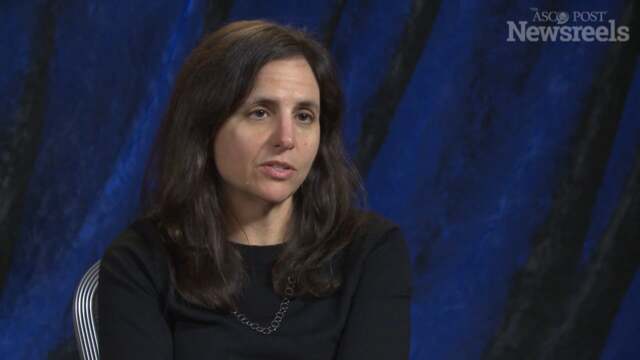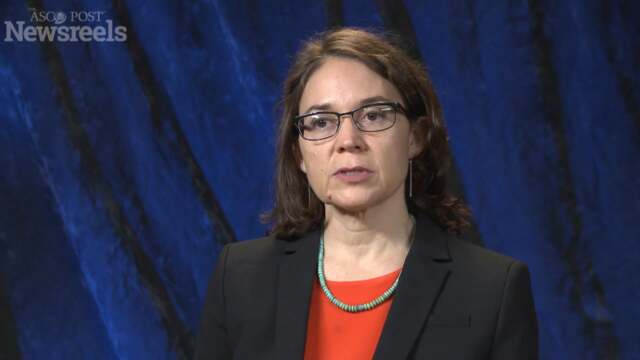Eileen Danaher Hacker, PhD, APN, AOCN: After Stem Cell Transplant: Enhancing Recovery With Strength Training
2016 Palliative Care in Oncology Symposium
Eileen Danaher Hacker, PhD, APN, AOCN, of the University of Illinois at Chicago, discusses study findings that show improvement in physical activity, fatigue, muscle strength, and functional ability (Abstract 190).
Eric Roeland, MD, of the University of California, San Diego, discusses the key papers presented at this year’s Palliative Care in Oncology Symposium.
James F. Cleary, MD, of the University of Wisconsin Carbone Cancer Center, talks about the many reasons that 80% of the world’s population lacks access to opioids, the mainstay of cancer pain management.
Jennifer S. Temel, MD, of Massachusetts General Hospital, discusses increasing prognostic uncertainty in light of targeted treatments and immunotherapies, and the difficulty predicting who will benefit.
J. Nicholas Dionne-Odom, PhD, of the University of Alabama at Birmingham, discusses the “hidden” health-care workforce of family caregivers and what clinicians can do to help ease the burden on families.
Emily Haozous, PhD, RN, of the University of New Mexico, discusses health disparities and cultural differences in palliative and end-of-life care, with case study examples drawn from American Indian communities.





